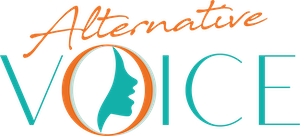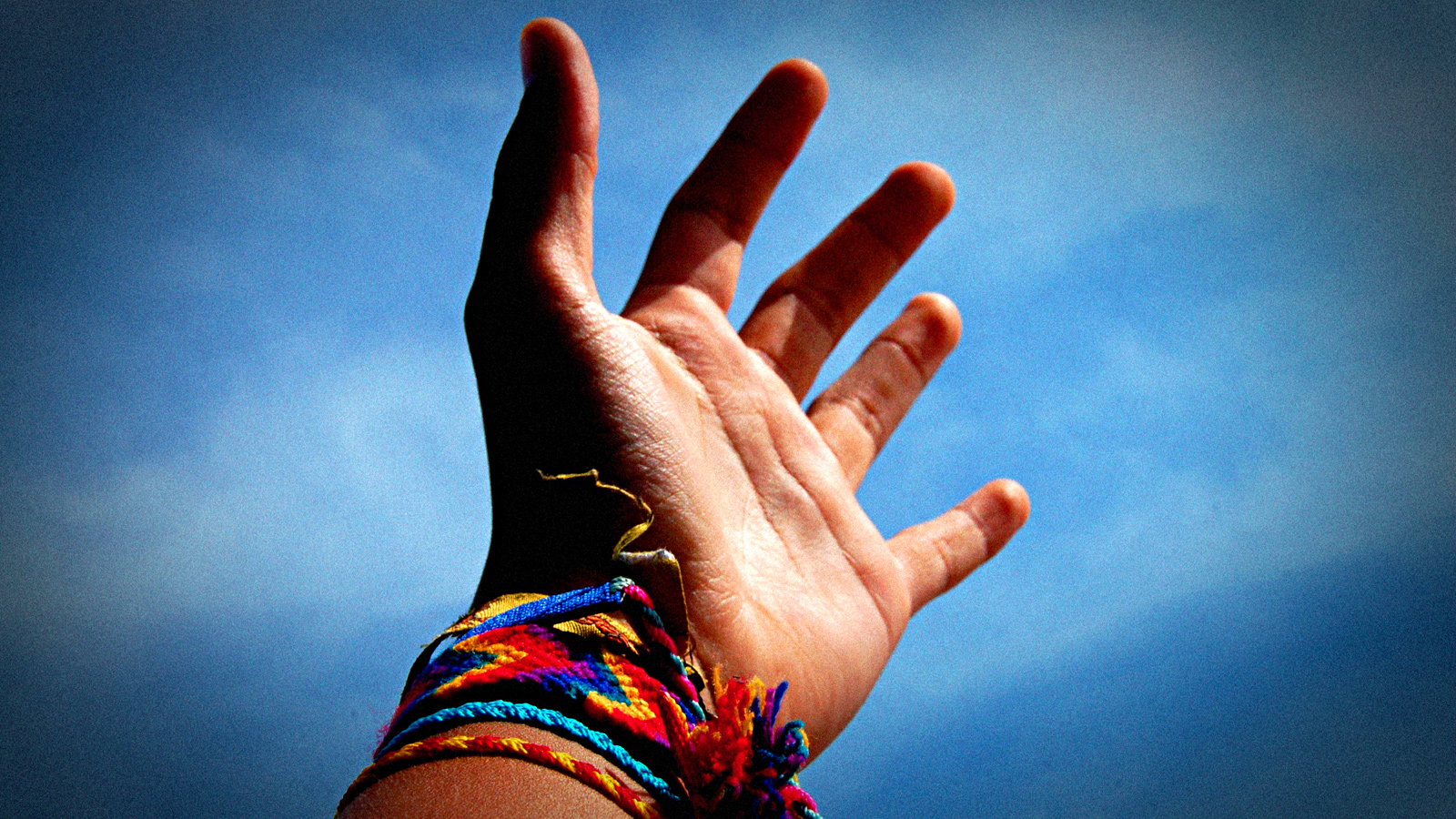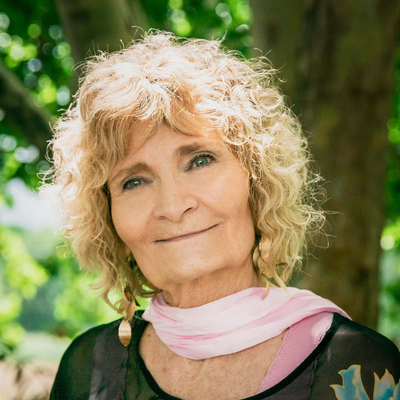I was brought up in a home with responsible, dedicated parents who showed how much they cared for us four children in many ways every day. I was taught basically “to do onto others as you would have them do onto you,” which meant to be kind, considerate, honest, and generally “go with the flow” and “don’t rock the boat.” But, as I grew from childhood into my young adult years, it became more and more difficult for me to just flow along, only seeing the good in others and in situations, for I didn’t just see the wonderful and the good (of which there was much in my world), but I also saw much that was not good and was, in fact, horrible. I increasingly realized that the boat of the status quo was very rocky for most of my Apache friends, who weren’t able to go with the flow of the dominant culture that forced a reality of poverty, racism, poor health, and marginalization for them and their tribe.
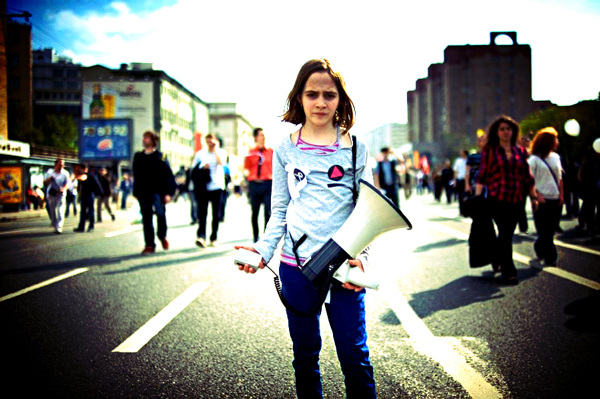 When I left home in 1966 to attend the university, I became even more aware of the rocky waters of the political and social world for many, and became supportive of the causes of the day—the American Indian Movement, the civil rights movement, the women’s movement, and protesting the War in Vietnam. I participated in protest marches, signed petitions, wrote letters to key politicians, and so on. I volunteered to work on the south side of town with the troubled and impoverished young people. I practiced the principle of Christ that I had been brought up with—to return good for evil. And I got into loud, boisterous arguments with some of my relatives who were more of the mainstream thinking. That was the level of my activism in my late teens and early twenties.
When I left home in 1966 to attend the university, I became even more aware of the rocky waters of the political and social world for many, and became supportive of the causes of the day—the American Indian Movement, the civil rights movement, the women’s movement, and protesting the War in Vietnam. I participated in protest marches, signed petitions, wrote letters to key politicians, and so on. I volunteered to work on the south side of town with the troubled and impoverished young people. I practiced the principle of Christ that I had been brought up with—to return good for evil. And I got into loud, boisterous arguments with some of my relatives who were more of the mainstream thinking. That was the level of my activism in my late teens and early twenties.
You may never know what results come of your actions, but if you do nothing, there will be no results.
– Mahatma Gandhi
After graduation from college, I returned to the Apache reservation where I had spent much of my childhood, and my activism turned more into becoming the best educator I could possibly be for the people I served, which meant enlarging my students’ worlds by bringing them into the histories, ways, thoughts, art, and cultures of other people from all over the world. Clistine Morningstar states in her article “Education and Spirituality” (in this issue of the Alternative Voice), “we often prefer the comfort of staying within a small circle of known facts, traditions, and thinking patterns instead of rising to the challenge of breaking new ground and seeing new connections.” I did everything I could to expand the minds, hearts, and experiences of my students, trying to assist them to become lifelong learners and deep thinkers who would have a better chance at having a smoother ride on the boat of the dominant culture.
But it wasn’t enough, and many years later, after working myself into exhaustion and walking pneumonia, I realized that I needed to upstep my returning good for evil by actually doing some sort of other type of confrontation of wrongdoing besides what I was doing. I remembered an incident from my childhood where my father confronted evil more outwardly. Our family was traveling at night on a fairly quiet highway on the Navajo reservation. We came upon a traffic backup of two or three cars in front of us and had to stop and soon realized the reason for the holdup. An inebriated Navajo man was on the side of the road, and two policemen were yelling, kicking, and hitting him. After about half a minute of watching this, my father angrily got out of the car and approached the policemen, strongly confronting them for their abuse. I could not hear all that my father said to those policemen, but they backed off and allowed my father to help the victim to our car where he put him in with all of us and drove to the nearest trading post where he found out where the man lived and drove him home. I had always admired and respected my father for his gentle, moral strength, but he became a true hero for me that night, a knight in shining armor on that dark desert highway.
There may be times when we are powerless to prevent injustice, but there must never be a time when we fail to protest.
– Elie Wiesel, Romanian-born Holocaust survivor, author of more than 40 books, winner of the 1986 Nobel Peace Prize
I recall another incident from my teen past, when I was among a group of girls in a club who were discussing whether to allow this one applicant to become a member. The arguments against having her become a member were trite and snobbish, for this person was not of the “in crowd” and actually resided on the margins of high school society. I was appalled by what was happening, but I kept silent, for I lacked the courage to speak up and confront the nonsense going on. Fortunately, another girl stood up and spoke strongly against what was going on in the group and nominated then and there that the applicant be admitted to the club. Another braver soul than I seconded it, and “good” happened. But I had failed to be part of that act of goodness by remaining silent and not confronting the evil going on. In fact, by my silence I actually participated in the wrongdoing. As nineteenth century American author Ella Wheeler Wilcox once said, “To sin by silence, when they should protest, makes cowards of men.” In my silence I had committed a “sin of omission,” which is not doing something when something should be done.
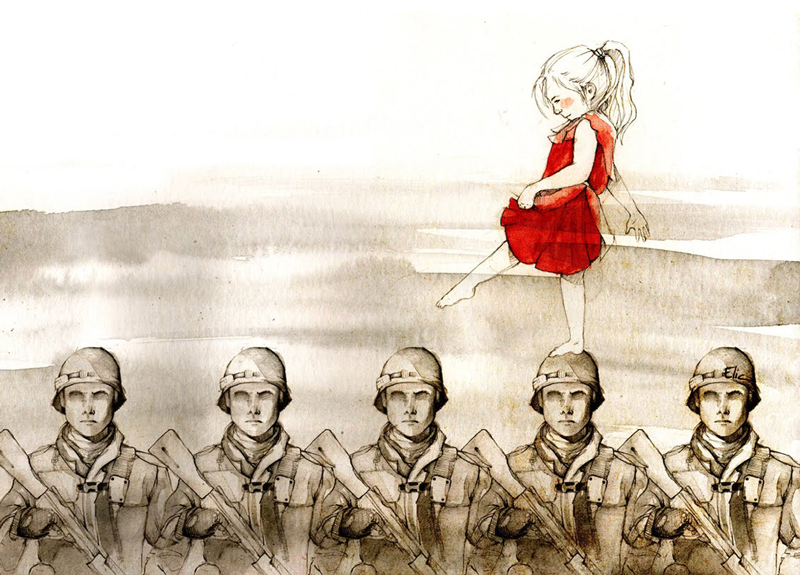 Albert Einstein, brilliant scientist and winner of the Nobel Peace Prize in physics, who later became an outspoken activist against the misuse of atomic energy and the evils of most wars, stated: “If I were to remain silent, I’d be guilty of complicity.” I usually acted “nice,” but being polite by not speaking up and trying not to rock the boat is cowardly when, in some circumstances, we need to not be so easy-going and complicit. Activism is the opposite of passivity, and I realized that at a deeper level when I met Van of Urantia in 1987. He certainly rocked my boat of niceties, for he was outspoken and confronted that which he discerned was wrong or not quite right. He went straight to the root of a problem, and he still does that.
Albert Einstein, brilliant scientist and winner of the Nobel Peace Prize in physics, who later became an outspoken activist against the misuse of atomic energy and the evils of most wars, stated: “If I were to remain silent, I’d be guilty of complicity.” I usually acted “nice,” but being polite by not speaking up and trying not to rock the boat is cowardly when, in some circumstances, we need to not be so easy-going and complicit. Activism is the opposite of passivity, and I realized that at a deeper level when I met Van of Urantia in 1987. He certainly rocked my boat of niceties, for he was outspoken and confronted that which he discerned was wrong or not quite right. He went straight to the root of a problem, and he still does that.
Henry David Thoreau—a great American philosopher, writer, and activist who influenced political thoughts and actions of such later figures as Leo Tolstoy, Mohandas K. Gandhi, and Martin Luther King, Jr.—stated that “There are a thousand hacking at the branches of evil to one who is striking the root.” Van of Urantia is the one out of the thousand striking at the root of problems caused by evil intent. In this issue of the Alternative Voice his article covers the costs of activism that he has experienced throughout the years due to his striking at the root of the problem.
In college one of my favorite religious authors, who was willing to pay the price of his outspoken activism against the Nazi regime, was German Lutheran pastor and theologian Dietrich Bonhoeffer, author of The Cost of Discipleship and Letters From Prison. He said that “we are not to simply bandage the wounds of victims beneath the wheels of injustice, we are to drive a spoke into the wheel itself.” He not only spoke out against the sins of Nazism from his pulpit, he was active in the German Resistance movement that actively drove a spoke into the wheel of Hitler’s regime. The cost for this level of activism was imprisonment for two years and then execution; yet decades later Bonhoeffer’s writings are widely read, which encourage people to become much more active in practicing their faith by speaking and acting against the evils of society. But first, they must face their own personal pet evils, which I did not really do at the level needed for my next upstep in activism until I met Van of Urantia, who I refer to as a “soul surgeon.”
One of the greatest soul surgeons, Jesus, encountered a rich young man named Matadormus who wanted to join Jesus’ close associates in their work, which was bringing a spiritual perspective of reality to humankind, a vision for a higher way of thinking, feeling, and doing. Jesus recognized that Matadormas was not yet mature enough to sacrifice what he needed to relinquish in order to be the kind of activist that Jesus and his close associates were, but Jesus did tell Matadormus that he could still become active in his own way at his own level. Matadormus insisted that he wanted to be associated at the level of Jesus’ spiritual activism. Jesus then told this young man: “I will have you be one of my messengers if you are willing to pay the price, if you will supply the one thing which you lack.” Of course, Matadormus enthusiastically responded that he would do anything. Jesus then said: “If you would be my messenger, go and sell all that you have and when you have bestowed the proceeds upon the poor or upon your brethren, come and follow me, and you shall have treasure in the kingdom of heaven.” When Matadormus heard this, “his countenance fell. He arose and went away sorrowful, for he had great possessions.”[i]
Jesus knew that Matadormus was “not free from the love of himself and his riches,” thus he would not be able to function at the level of spiritual activism he claimed to desire. As true soul surgeons over the centuries have done—before and after Jesus—he wanted to deliver Matadormus “from the love of wealth, not necessarily from the wealth.”[ii] How many people are there who claim they are activists, and they may be at some lesser level, but how many are willing to relinquish their “pet evils” in order to practice activism at a much higher level? In reference to the encounter between Jesus and Matadormus, we are told: “Almost every human being has some one thing which is held on to as a pet evil, and which the entrance into the kingdom of heaven requires as part of the price of admission.”[iii]
 Minister, educator, writer, and outspoken activist for the merging of science and religion Michael Dowd says of the kingdom of heaven: “For Jesus, God’s Kingdom of Heaven was an inspiring vision of a religious, political, economic, and social reality, grounded in the presence and activity of the Source, Substance, Energy, and End of everything. The Kingdom had both a factual measurable dimension and an inspiring, nonmeasurable dimension. . . . It held meaning in each and every moment and in every situation.” I realized that true spiritual activism had to take hold of every part and particle of me in order for me to become what I wanted to become—a love-saturated soul who was willing to be a soul surgeon, getting to the root of the sin in myself as well as in society in general and “walk my talk,” “practice what I preach.”
Minister, educator, writer, and outspoken activist for the merging of science and religion Michael Dowd says of the kingdom of heaven: “For Jesus, God’s Kingdom of Heaven was an inspiring vision of a religious, political, economic, and social reality, grounded in the presence and activity of the Source, Substance, Energy, and End of everything. The Kingdom had both a factual measurable dimension and an inspiring, nonmeasurable dimension. . . . It held meaning in each and every moment and in every situation.” I realized that true spiritual activism had to take hold of every part and particle of me in order for me to become what I wanted to become—a love-saturated soul who was willing to be a soul surgeon, getting to the root of the sin in myself as well as in society in general and “walk my talk,” “practice what I preach.”
In my heightened spiritual activism I continually am striving to see with spiritized eyes, being tapped into the divine mind of the Creator so that I more readily recognize wrongdoing and try to do something about it, especially the wrongness within me. Gard Jameson, who is a minister, author, and teacher of Asian philosophy and comparative religions, asks some pertinent questions that we need to answer in order to understand how our own thinking and lifestyles contribute to being part of the bigger problem. “As we do a reality check, looking around us at the history and circumstances of our lives in motion, can we feel the tired drone of culture’s call to give in to our aggressive or greedy instincts? Do we recognize when our own thoughts are being colonized by the forces of clever slogans and tantalizing images? Are we willing to mortgage our future for a few transient moments of self-gratification?”
Expanding upon actively pursuing goodness as an activist, I had to outgrow my desire to always be the diplomat who never rocks the boat and who brings harmony into every situation, just going with the flow. I have a responsibility to recognize and confront the ills of the dominant society. Thomas Berry, cultural historian, philosopher, writer, and environmental activist, has explained: “The assault on the natural world has been carried out by good persons for the best of purposes, the betterment of life for this generation and especially for our children. It is not bad people, it is the good people acting for good purposes within the ethical perspectives of our cultural traditions that have brought such ruin on this continent and on the entire planet.” We must challenge those traditions and values of the dominant culture that are based on materialism, greed, selfishness, short-sightedness, and untruthful ideas that are based on superstition and backward, outmoded perspectives.
Sin is the refusal to realize one's radical interdependence with all that lives: it is the desire to set oneself apart from all others as not needing them or being needed by them. Sin is the refusal to be the eyes, the consciousness, of the Cosmos.
– Sally McFague, renowned feminist, ecotheologian, and writer
Michael Dowd speaks of the collective and systemic sin of society. “The fundamental immaturity of the human species at this time in history is that our systems of governance and economics not only permit but actually encourage subsets of the whole (individuals and corporations) to benefit at the expense of the whole.” We all are part of that collective selfish mindset that permits us to live lifestyles that are devastating to the natural world and all of life, including human beings. In order to become activists at the highest level, we have to drastically change how we think, feel, and live. Kazarian Giannangelo, in his article in this issue of the Alternative Voice, shares about his experiences with the Occupy movement and how he recognized that, like him, there are many activists who see the problems of the world and want to make changes in the system but are reluctant to make the deep personal changes within themselves. He states that “the progress of the whole depends on the willingness of individuals to make personal changes.”
As I made a commitment to actively and daily “return good for evil,” so have all of the writers of articles in this issue (that is focused on “The Cost of Activism”), and in order to do this, we are part of an interdependent group of people who are building a culture of congruency and sustainability based on values and practices that are very different from mainstream society and which is a model of what can be done worldwide. Just by making the decision to be students at The University of Ascension Science and The Physics of Rebellion we are spiritual activists—change agents. We see change agents as those who change their own part-of-the-problem thinking into problem-solving thinking, which will lead to developing a world view, a perspective that is more “real,” that is more sustainable economically, ecologically, socially, politically, medically, and spiritually. As our inner changes happen, a deeper willingness to make choices based upon integrity and compassion emerge.
Today—in a world filled with daily news of vast suffering and tremendous oppression on nearly every front in society and in every country—surely we can each find some small (and hopefully eventually bigger) corner of our world where we can each make a difference in the lives of others—beginning perhaps with simply our own family, friends, neighbors, and colleagues. Remember, there is great wisdom in the fact that truly “a journey of a thousand miles begins with just one step.” But we must not stop at the first step, or the fifth, or the hundredth, we must continue taking those steps of true progress and ascension throughout our lives, ever upstepping our level of activism and service to others.
[i] The URANTIA Book, Paper 163, Section 2, Paragraph 6.
[ii] Ibid.
[iii] The URANTIA Book, Paper 163, Section 2, Paragraph 7.
